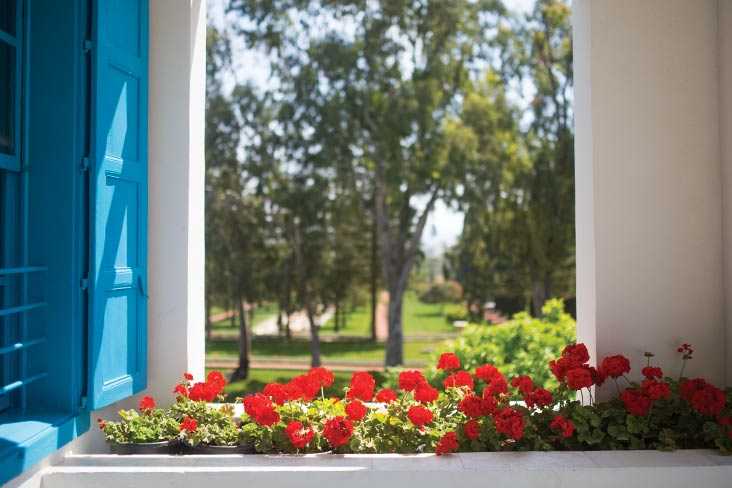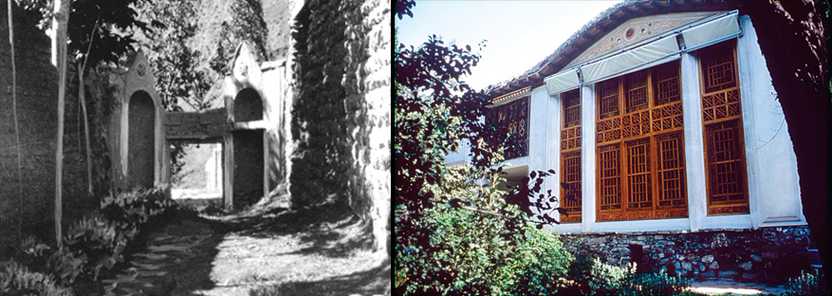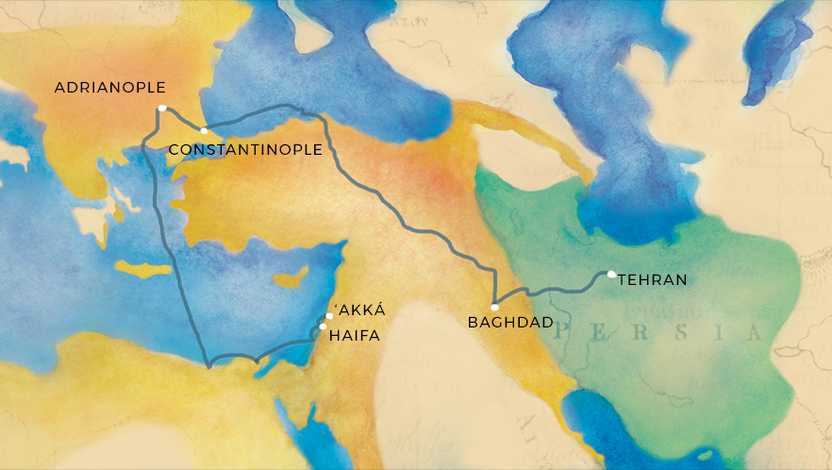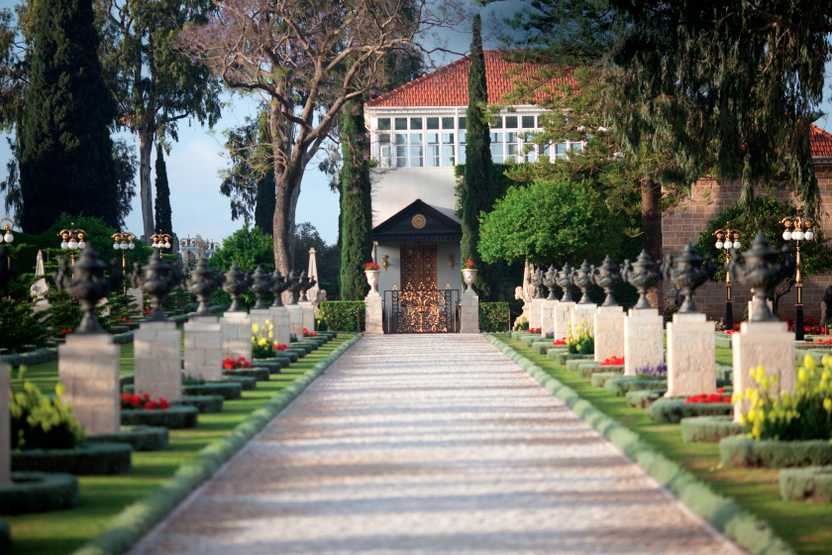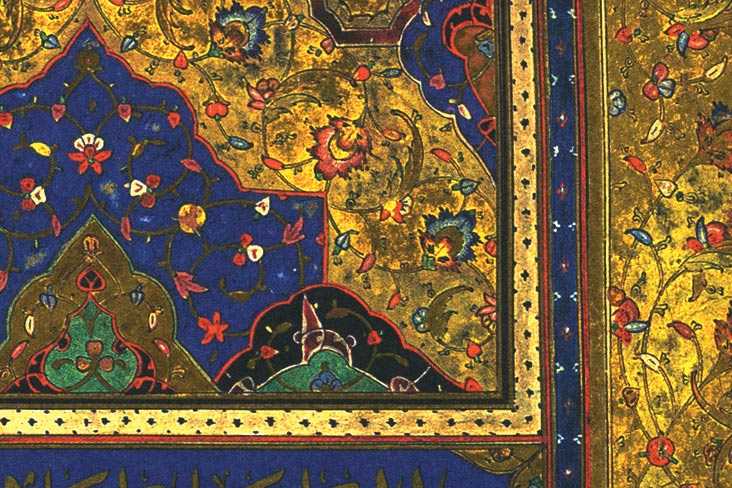The Bahá’í writings often compare the coming of a Manifestation of God to the rising of the sun. The appearance of God’s messenger is like the start of each new day, when the sun’s rays release energy into the world, shedding light on all things and allowing the eye to see what was obscure in the darkness of night.
A new day has dawned for humanity with the coming of Bahá’u’lláh, "the Glory of God", and His Herald, the Báb—the two most recent of the Divine Messengers Who have appeared throughout history. Just as the dawning sun stirs the sleeping world to life, the rising of these Twin Manifestations of God has reenergized humanity’s search for higher meaning and purpose in life. Bahá’u’lláh’s teachings shed light on human affairs at a time when, it can be argued, darkness has settled on the world. His teachings help humanity make sense of and navigate the great changes that are rapidly unfolding. While these changes disrupt the order of things, create chaos, and perplex even the most astute leaders, they also open the way for new patterns of life and new forms of human organization to emerge.
In this turbulent period of human history, the world is in need of a unifying vision of our true nature as human beings and of the kind of world in which we would want to live. Bahá’ís believe that this vision is revealed in the writings of Bahá’u’lláh, whose life and teachings are the most compelling story of our time.
Film clip: Short reflections on the concept of the Manifestation of GodDOWNLOADBahá’u’lláh delivered a new revelation from God. His mission was to spiritually re-awaken humanity and unite all the peoples of the world. Bahá’u’lláh’s teachings form the basis of the Bahá’í Faith and offer a vision of infinite hope and healing. "My object is none other than the betterment of the world and the tranquillity of its peoples," wrote Bahá’u’lláh. For this noble purpose, He endured a life of persecution, imprisonment, torture, and exile.
Bahá’u’lláh, was born in Tehran on November 12, 1817, and was named Mírzá Husayn-‘Alí. His father, Mírzá Buzurg, held a high-ranking position in the court of the Persian king. At a young age, Bahá’u’lláh exhibited qualities that made those around Him realize He was no ordinary child. He possessed an innate wisdom and intelligence, even though He did not attend school, and as He grew, the signs of His greatness became increasingly clear. Bahá’u’lláh became known for His keen insight, His excellent character, His generosity and compassion. At the age of 18, Bahá’u’lláh married a young woman, Navváb, and their home became a shelter, a place of light and love and hospitality, open to all.
The house of Bahá’u’lláh (right) and a photo of its entrance (left) in Tákur, northern Iran, destroyed by the Iranian government in 1981.Bahá’u’lláh was 22 years old when His father passed away, leaving Him responsible for managing the household and extensive family estates. The government offered Bahá’u’lláh His father’s ministerial post, but He declined this prominent position. He was not interested in titles and honours; His interest was in defending and protecting the poor and the needy. Instead of pursuing a life of power and leisure, Bahá’u’lláh chose to devote his energies to charity and acts of service. By the early 1840s, He had become known as "Father of the Poor."
With Bahá’u’lláh’s acceptance of the religion of the Báb, life permanently changed for the young nobleman and His family. The Báb was a young merchant from Shiraz, Persia, who proclaimed in 1844 that He was bearer of a new message from God and the harbinger of the coming of the Promised One of all religions. Although Bahá’u’lláh and the Báb never met in person, they corresponded. From the moment Bahá’u’lláh heard of the Báb’s message, He declared His wholehearted belief in the cause and put all of His energy and influence into promoting it.
Bahá’u’lláh’s imprisonment began in Persia in 1852 when, as a supporter of the Báb, He was arrested, tortured, and cast into a subterranean dungeon, Tehran’s notorious Síyáh-Chál, the "Black Pit." It was during this imprisonment, through the foul prison air, filth, and pitch-black darkness, that the first stirrings of a divine revelation came to Him. As Bahá’u’lláh sat with His feet in stocks and a 100-pound iron chain around His neck, the Holy Spirit of God was revealed to Him.
This was an event comparable to those great moments of the ancient past when God revealed Himself to His earlier Messengers: when Moses stood before the Burning Bush; when the Buddha received enlightenment under the Bodhi tree; when the Holy Spirit, in the form of a dove, descended upon Jesus; and when the angel Gabriel appeared to Muhammad.
In His writings, Bahá’u’lláh later described the experience and the essence of God’s revelation coming through Him:
"The breezes of the All-Glorious were wafted over Me, and taught Me the knowledge of all that hath been. This thing is not from Me, but from One Who is Almighty and All-Knowing. And He bade Me lift up My voice between earth and heaven."
"During the days I lay in the prison of Ṭihrán, though the galling weight of the chains and the stench-filled air allowed Me but little sleep, still in those infrequent moments of slumber I felt as if something flowed from the crown of My head over My breast, even as a mighty torrent that precipitateth itself upon the earth from the summit of a lofty mountain. Every limb of My body would, as a result, be set afire. At such moments My tongue recited what no man could bear to hear."
Upon His release from the Black Pit, Bahá’u’lláh was banished from His homeland in what began 40 years of exile, the remainder of His earthly life. He publicly announced His mission as God’s Messenger in 1863.
Bahá’u’lláh’s ExilesThe followers of Bahá’u’lláh became known as Bahá’ís. As these followers multiplied, attracted by His magnetic character and deeply spiritual teachings, Bahá’u’lláh was further exiled. He was sentenced to imprisonment in the harshest penal colony in the Ottoman Empire, the ancient city of ‘Akká, located in what is now Israel. The foul climate, lack of fresh water, and vermin-infested buildings made life in ‘Akká one of the most severe punishments possible. Bahá’u’lláh arrived there in 1868, along with 70 of His family members and followers. It was in ‘Akká that Bahá’u’lláh wrote some of His most important works, addressing the kings and rulers of His day, and revealing the laws and principles that would lead humanity into an era of universal peace.
"The earth is but one country and mankind its citizens," He wrote. "It is not for him to pride himself who loveth his own country, but rather for him who loveth the whole world."
As time passed, local authorities relaxed the conditions of Bahá’u’lláh’s imprisonment and He moved a short distance north to Bahjí, where He spent the last 12 years of His life. During this period, Bahá’u’lláh made several visits to the nearby slopes of Mount Carmel where, in 1891, He designated a permanent resting place for the remains of His Forerunner, the Báb.
In 1892, after a brief illness, Bahá’u’lláh passed away at the age of 75. His earthly remains were laid to rest in a small building next to His final residence in Bahjí. In His will, He designated ‘Abdu’l-Bahá as His successor and Head of the Bahá’í Faith — the first time in history that the Founder of a world religion had named his successor in a written irrefutable text. This choice of a successor is a central provision of what is known as the "Covenant of Bahá’u’lláh," enabling the Bahá’í community to remain united for all time.
The Shrine of Bahá’u’lláh